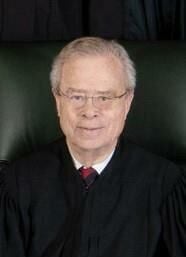
RICHMOND, Virginia – EQT has asked the U.S. Fourth Circuit Court of Appeals for a rehearing on two class certification issues in a high-profile gas royalties case.
Last month, the three-judge panel of the appeals court reversed a lower court class certification order, saying the class certification of the plaintiffs’ breach of contract claim was valid. But it agreed with EQT that the lower court improperly certified a class based on the plaintiffs’ fraudulent concealment claim.
The Fourth Circuit heard that case because EQT has asked it to reverse U.S. District Judge John Preston Bailey’s order based on four fundamental class certification requirements. The case was argued last October.
Now, EQT wants the appeals court to rehear the case en banc, meaning it is asking all the judges of the Fourth Circuit hear the case rather than a three-judge panel.
“This petition for rehearing en banc presents two class certification issues – concerning ascertainability and predominance – on which the panel majority departed from circuit precedent in affirming the certification of a breach-of-contract class,” the September 3 petition states.
The class includes former and current owners of more than 3,800 gas leases in West Virginia that, according to EQT, fall into at least 70 different categories “even when grouped in the most general terms.”

Niemeyer
The petition also cites Judge Paul Niemeyer’s dissent last month, which said the court’s decisions in two previous cases “unmistakably indicate that a class should not have been certified in the circumstances presented.”
As for the ascertainabilty, EQT says the majority last month affirmed Bailey’s conclusion that the putative class became ascertainable following a discovery order requiring EQT to undertake “independent research” and create a document identifying every class member and linking each to their respective lease and well.
EQT says that conflicts with a 2014 Fourth Circuit ruling in EQT v. Adair that said it is the plaintiff’s burden to produce evidence of ascertainability and that “ascertainability exists only if class members are ‘readily identifiable’ without ‘extensive fact-finding.’
As for predominance, EQT argues that previous rulings make clear that class actions involving many different contracts should rarely, if ever, satisfy the predominance inquiry. It says the majority should not have affirmed Bailey’s finding that this class and the 70 or more lease types satisfies predominance.
“This obvious outlier, and the flawed reasoning that led to it, will lead to widespread confusion if not corrected,” EQT argues, adding that the Fourth Circuit issued a ruling just last week in Freeman v. Progressive that “already conflicts with the panel majority’s opinion here.”
“To say the very least, the majority opinion ‘blurs what have been clearly established criteria for satisfying the class action requirements,’” EQT’s attorneys write. “As class actions play an increasing role in the legal system, rehearing en banc is necessary not only to restore consistency and coherence to this court’s precedents on both ascertainability and predominance, but also to ensure that both remain the critical guardrails on class certification that they are intended to be.”
In last month’s majority opinion, the Fourth Circuit said Bailey was wrong when he “rejected EQT’s contention and held that ‘under West Virginia law, fraudulent concealment does not require a showing of reliance.”
“The district court abused its discretion in certifying plaintiff’s fraudulent concealment claims, as questions affecting only individual class members will predominate over common questions of law or fact,” Judge DeAndrea Gist Benjamin wrote. “West Virginia law requires proof of reliance on the defendant’s alleged fraudulent acts and considers the individual circumstances under which a plaintiff received and reacted to said acts.”
In his dissent, Niemeyer said he would reverse the class certification as to the plaintiffs’ contract claims as well.
Niemeyer said the majority failed “to demand the rigorous analysis that the district court was required to conduct before finding that there are questions of law or fact common to the class and that the representative parties’ claims are typical of those of the class” as required by law.
“The majority also fails to require a rigorous analysis into whether common questions of law or fact predominate such that the class action is superior to other available methods for fairly and efficiently adjudicating the controversy,” Niemeyer wrote. “These failures are especially telling in the circumstances of this case where 70 different types of royalty leases are involved and were entered into at different times and in differing circumstances.”
Niemeyer says the judicial process in this case could be messy.
“The majority rushes to affirm a judicial process that will be chaotic and cause unnecessary expense, and in doing so, it blurs what have been clearly established criteria for satisfying the class action requirements,” he wrote. “Although the majority would have it otherwise, the class certified here is ‘no more than a hodgepodge of factually as well as legally different plaintiffs that should not have been cobbled together for trial.”
The Fourth Circuit agreed to hear EQT’s appeal in November 2023. The following day, Bailey stayed the case before him in federal court pending the appeal. In October, Bailey had granted EQT’s motion for partial summary judgment on fraud claims in the case. EQT petitioned the Fourth Circuit for the appeal the following day.
In the original complaint filed in 2019, the plaintiffs claim EQT breached contracts by shorting them on payments for natural gas royalties and by failing to make timely royalty payments. They also say the company breached its fiduciary duties and misrepresented to them that they were being fairly compensated.
The company said it paid the owners for the value of natural gas liquids based on the BTU content of the gas until January 2021 and is not obligated to pay more just because it goes on to process the liquids and sell them as hydrocarbons.
The plaintiffs are being represented by Robert J. Fitzsimmons, Mark Colantonio and Donald M. Kresen of Fitzsimmons Law Firm in Wheeling, Eric M. Gordon of Berry Kessler Crutchfield Taylor & Gordon in Moundsville, Roger L. Cutright and Andrew R. Cutright of Cutright Law in Morgantown and Marvin W. Masters of The Masters Law Firm in Charleston.
The defendants are being represented by Lauren Varnado of Brown Rudnick in Houston, by Jennifer Hicks of Babst Calland in Charleston and by Elbert Lin and Erica N. Peterson of Hunton Andrews Kurth in Washington.
U.S. Fourth Circuit Court of Appeals case number 23-256 (U.S. District Court for the Northern District of West Virginia case number 5:19-cv-223)








